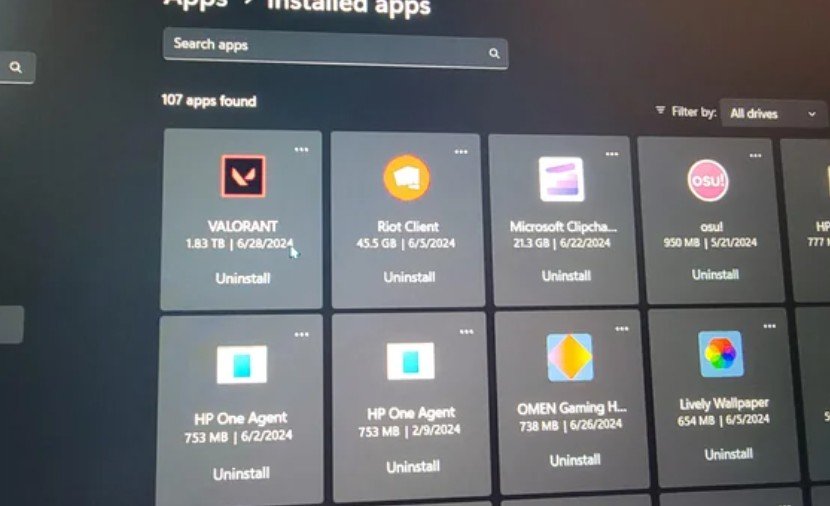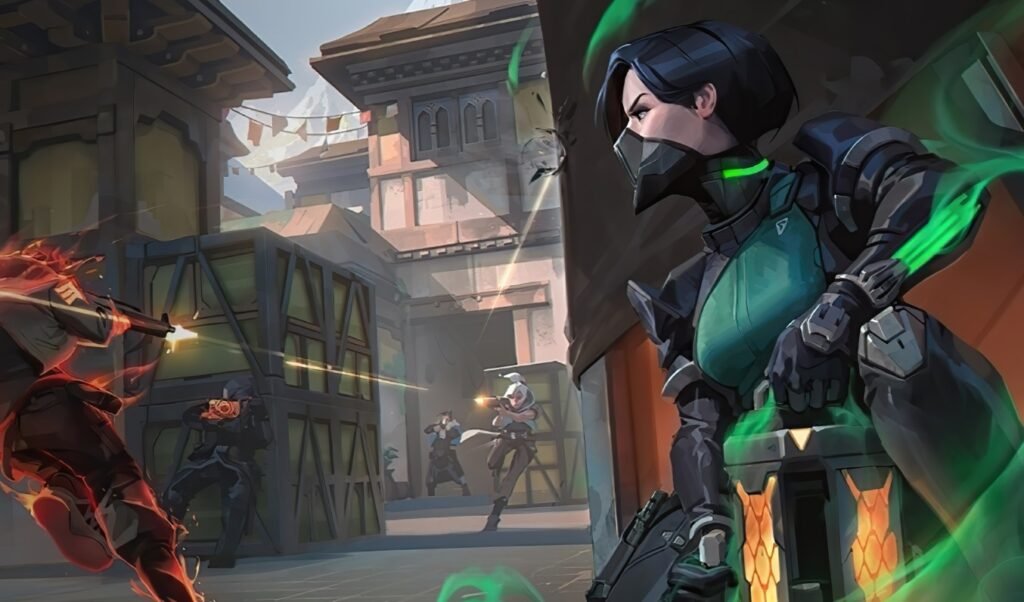Are you looking for Why Does Valorant Take 3 TB? It’s quite common to get a blank feeling seeing around 3 terabytes of disk space occupied by Valorant in the file explorer. Many users have flagged this extremely weird bug wherein Riot’s popular FPS game somehow takes up terabytes of storage, which in itself should be impossible for such a lightweight game.
So, why does Valorant take3 TB of space and even more importantly, how can it be fixed? The probability of considering any logic behind this insane size behavior and possible ways to recover the storage space will be analyzed in this entire guide.
Why Does Valorant Take 3 TB?
Under any sane circumstance, Valorant doesn’t ask for that 3 TB storage. If your system insists that Valorant somehow is occupying terabytes, it’s more likely that the game is afflicted by a bug, some infinite logging loop, corrupted files, or some error on the part of Riot Vanguard or other running background services.

Why Is Valorant Taking Up 3TB And How To Fix It?
When Valorant began mysteriously to jump in space occupation to terabytes, something from behind had gone wrong at one point. Below are the possible major reasons and their fixes.
Infinite Log File Generation
- Valorant may generate huge amounts of log files if there is an error loop going on in the background.
- These logs can grow too quickly for comfort, especially when the log generation has been provoked by any kind of crash or failed update.
How To Fix It?
- C:\Users\[YourUsername]\AppData\Local\VALORANT\Saved\Logs
- Delete everything inside the Logs folder.
Riot Vanguard Issues
- Riot Vanguard creates some superfluous system logs or update loops that constrain file size from any rational escalation.
How To Fix It?
- Uninstall Riot Vanguard and Valorant entirely from the Control Panel.
- Reboot your PC, and install both again using the appropriate installer.
Corrupted Game Cache or Temp Files
- When cache or temp files don’t get deleted properly, they can accumulate with every game session.
How To Fix It?
- Hit Windows + R, type in %temp%, and delete everything inside.
- Run Disk Cleanup and eradicate old update files and rubbish from the system.
Storage Reporting Bug
- Some players report that this is a Windows bug that incorrectly measures file sizes because of junction folders or symbolic links.
How To Fix It?
- Use software such as WinDirStat or TreeSize to ascertain real file sizes.
- Delete irrelevant folders that may be linked to multiple instances.
User Reports and Experiences of Why Is Valorant 3 TB?
No, the strange case of 3TB is not as rare as one would expect. Several users have begun complaining on Reddit, Riot Games forums, and Discord servers about Valorant bloating by 1 TB, 2 TB, and even 3 TB.

Common User Experiences
- As stated by a Reddit user, after only a couple of weeks of playing, Valorant piled up to over 2.4TB on their SSD. And upon inspection, they saw thousands of log files and crash dumps cluttering their AppData folder, with each of them weighing several gigabytes.
- Another user on Riot’s support forum reported that their C: drive filled up overnight with a larger-than-expected consumption, and the cause happened to be that Valorant generated gigabytes of diagnostic logs due to an annoying crash.
- Some players believe that every instance wherein Valorant had server connection issues or crashes, which were responsible for the creation of large files that were never deleted, gave birth to hundreds of gigabytes or terabytes of sheer headache data.
How Much GB Should Valorant Take Up?
Typical Valorant installations are around 30 to 40 GB, but this does differ when considering updates. It usually contains all the essential files required to run the game, wherein lies maps and core assets.
Over time, the dusty additions of regular updates and patches, and some accumulation of cache can raise the total space on your drive a little. But even then, it should not go past the 45-50 GB in almost every situation. The game, in general, has been fairly optimized and compactized by Riot Games as compared to a lot of the other modern shooters.
If you see that Valorant has multiple gigabytes more than 100, this is a red flag. It can indicate trouble, such as corrupted files, way too much cache, or some error during the process of updating. In such situations, it’s a good idea to verify the game files through the Riot client or consider a clean uninstall and reinstall to free up space.
Is Valorant Consuming 3 TB Correct?
No, it’s wrong. Valorant is a lightweight competitive game, and it’s not about high gigabytes but terabytes going up. At least, those are tens of GBs to be used if there is a system that bears the mark of being used up to the 3 TB case.
- It’s nearly always a file generation bug that happens when your system shows 3 TB used.
- There could be backup loops, crash logs, or symbolic file errors.
- Or, you might be witnessing the byproduct of temporary files being created in infinite numbers.

Why Is My Valorant 2TB?
The whole 2TB thing is alarming enough with that huge amount of data. In almost all situations,
- You deal with corrupted Riot game logs or a mischievous update.
- Programs such as WinDirStat may help you figure out what folders are very large.
- Check the log and dump folders in AppData, ProgramData, or within the Riot Games installation directory.
What Is Valorant Disk Space?
Valorant disk space means the total space which the game takes up on your computer’s hard drive or SSD. It comprises all the files necessary for installation, running and updating the game, including maps, textures, audio files, patches, and all system data.
On a fresh installation, Valorant generally occupies around 30 to 40 GB of disk space. The size might increase slightly after each update and patch over time, but it mostly remains within 45 to 50 GB at most.
Why Does Valorant Take So Long To Load?
In case you have an unusually long Valorant load time, these could be the problems:
Causes
- Corrupted cache/saved logs may slow down startup.
- Low disk speed (especially on HDDs).
- GPU or chipset drivers are outdated.
- Conflicts with Riot Vanguard loading.
- Antivirus scanning game files.
Fixes
- Moving the game to an SSD for reduced load time.
- Delete unnecessary log/cache files.
- Disable background tasks and auto-start apps.
Conclusion
To finalize, Why Does Valorant Take 3 TB? If it does, it is a culprit of log file loops, update bugs, or corrupted system files, not the game itself. However, fixing it should be as easy as pie if you take the required steps.
Always watch the game folder and do periodical cleanups; in case the issue persists, reinstall Valorant. Maintain your storage, and keep it in a low, fast, light, and competitive application, the way Riot wanted it.
Top FAQ’s
Where can I find the large Valorant files?
Navigate to:
C:\Users\[YourName]\AppData\Local\VALORANT
Check folders such as Saved, Logs, and Crash Reports.
How do I delete excess Valorant files?
Delete logs manually from AppData or use Disk Cleanup tools like CCleaner. Clearest reinstall is generally the best solution.
Will reinstalling Riot Vanguard help?
Yes, there were storage-related problems, and almost all were directly connected to Vanguard bugs. It fixes everything while reinstalling both Vanguard and Valorant.
Is there any official Riot fix?
It hasn’t been. Riot has not acknowledged it as a global issue, but several threads build over the community confirming this bug and that reinstalling solves it.
